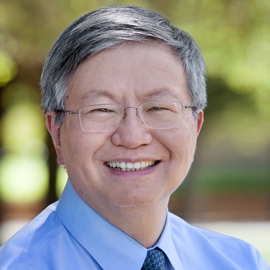Keynote Speakers

Prof Hau L. LEE
Thoma Professor of Operations, Information and Technology
Stanford University
Title: One Belt One Road - One Great Opportunity for POM Research
The One Belt One Road Initiative, introduced by Chinese President Xi Jinping in 2013, promised to be one of the most important and powerful initiatives that could change the economic order and well being of major parts of the world. While the whole journey is still being unfolded, this talk is a forward looking one. It is my subjective view that there lie great opportunities for the OM community to make advances with this exciting initiative. I will integrate some past and current research that fit such opportunities, and describe what new research can be developed. I hope the talk can stimulate the audience's thoughts, and hopefully, result in POM being a full participant of this initiative in the years going forward. The POM community can make an impact and significant contributions to this major effort.

Prof Awi FEDERGRUEN
Charles E. Exley Professor of Management
Columbia Business School
Title: Competition in Multi Echelon Supply Chains
There is well established literature on supply chain models under oligopolistic competition Until recently, almost all of this literature was confined to two echelon settings with a single supplier selling to several competing retailers, or, conversely, several suppliers competing for the business of a single buyer. Typically, only a single product, or at best a given product assortment was considered.
Our community has enriched this literature by analyzing the impact sf various service characteristics, such as fill rates, waiting time standards etc., considering settings where firms compete in prices, service characteristics, yield distributions, or combinations thereof. In this presentation, we start with a brief overview of these models.
The second part of our talk covers recent general models for a supply chain with a general number of echelons, in which, at each echelon of the supply process, an arbitrary number of firms compete, offering one or multiple products to some or all of the firms at the next echelon. Firms at the most downstream echelon sell to the end consumer. At each echelon, the offered products are differentiated Prices are set sequentially and non-cooperatively by echelon, starting with firms at the top echelon, followed by those at the next echelon , etc. Most importantly, in these models the product assortment offered in the market depends on what prices are selected, in equilibrium.







